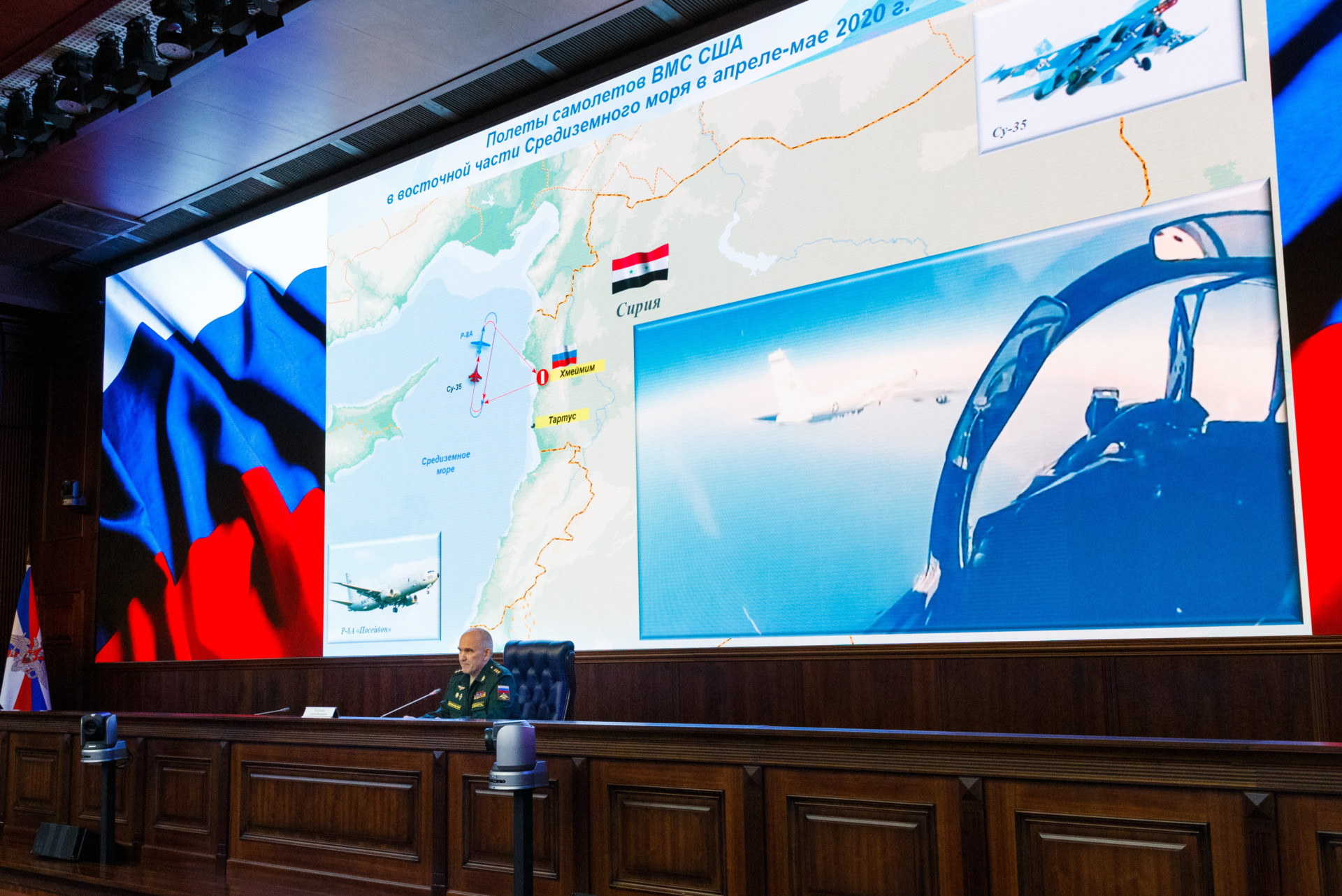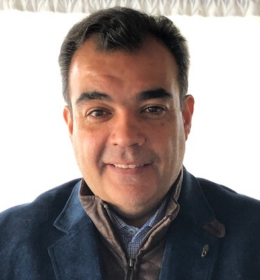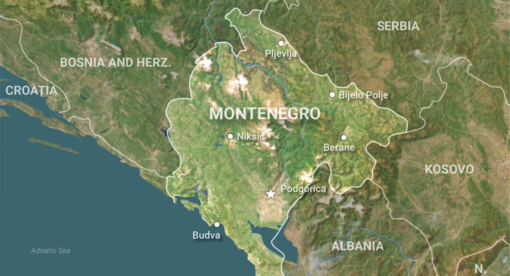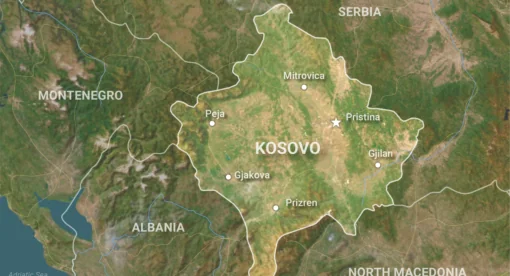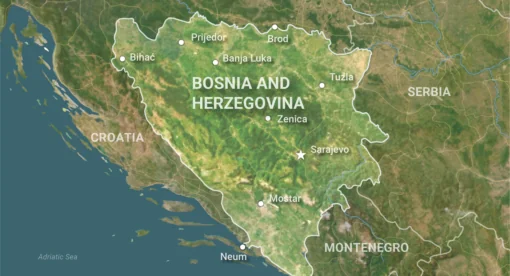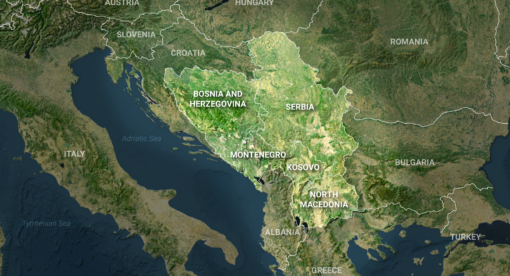When the Syrian civil war erupted, the tensions between Russia and the United States had intensified for the first time since the Cold War, greatly reducing the chance of a successful political transition in Damascus. Russia’s approach to Syria has changed over the years, depending on conditions at home. These changes can be viewed as three stages that show how Russia could be pressured to play a more constructive role in Syria.
The first stage was the role Russia played at the U.N. Security Council starting in 2011, which coincided with a tense political situation inside Russia. The second stage followed a period of relative domestic stability for Russia and included a direct military intervention in Syria in September 2015. The third and current stage is more assertive, with Russia trying to impose its own conditions for resolving international crises, and reflects Putin’s consolidation of power in a manner that allows greater focus on the international scene. The common thread is that Russian foreign policy is intimately tied to its domestic anxieties. U.S. policy can and should exploit those domestic concerns by using intense economic pressure to facilitate a Syrian solution that stems from a U.S.-Russian accommodation. Washington’s campaign of pressure focusing solely on the Assad regime is unlikely to succeed.
The First Stage: 2011-2013
The Arab Spring revolts against authoritarian regimes coincided with a surge in opposition in Russia between 2011 and 2013. In 2008, President Vladimir Putin swapped roles with Prime Minister Dmitri Medvedev, having reached his limit of three consecutive terms. The 2011 legislative elections, in which Putin’s party was victorious, and Putin’s return to the presidency after elections in 2012 provoked widespread protests. Demonstrators demanded the abolition of election results, changes in laws, the release of political detainees, and a fight against corruption. Putin suspected the United States of playing a role in these protests, accusing it in December 2011 of encouraging “mercenaries” to criticize the election results.
It became clear that Russia was acutely sensitive to its domestic situation and did not feel secure. The protests that erupted in the Middle East increased Russia’s sensitivity. In particular, the Libyan uprising presented a worrisome scenario for Moscow. On March 17, 2011, the U.N. Security Council passed Resolution 1973 as part of the international response to the Feb. 17 uprising in Libya as an attempt to protect Libyan civilians from Moammar Gadhafi’s forces. The decision eventually led to the end of Gadhafi’s rule. Russia felt betrayed by the Western countries on the council, and it accused them of exploiting the principle of “responsibility to protect” for purposes of regime change, to which Russia is generally opposed.
Then came the Syrian uprising, which was intensifying at a pace and with demands on par with the protests Putin faced in Russia. The Kremlin views everything going on in Moscow and the Arab countries, and previously in Iran (represented by the Green Movement protests in 2009), as part of an old, elaborate, seemingly successful U.S. strategy that leverages the promotion of liberal values such as democracy, individual liberties, human rights, freedom of expression, and the rule of law, as tools to undermine adversarial nations.
Thus, Russia took an intransigent position on Syria and U.S. diplomatic initiatives to solve the crisis. Russia informed the countries supporting the Syrian uprising that it would not allow a regime change in Syria or elsewhere via armed insurrection and that the only acceptable solution is a political solution resulting from negotiations between the regime and the Syrian people – similar to the solution between Putin and the opposition in Russia. Moscow insists that such a solution must respect the sovereignty of state and internal laws governing the relationship between the government and the people, and that reforms can be developed to form a new social contract without any outside interference. This stance mirrors Russia’s anxieties about its own political opposition.
Second Stage: 2014-2016
This stage was marked by Russia’s undertaking of some (largely unsuccessful) economic reforms at home to relieve some of the people’s anger. After a period of internal stability in 2014, Russia announced the annexation of Crimea – likely in part to strengthen the feeling of Russian nationalism and evade demands from the Russian population. The international community condemned the action and imposed sanctions on Russia but took no serious steps to stop the annexation process and protect civilians there from the Russian invasion.
The absence of meaningful international action to oppose the annexation of Crimea encouraged the Russians to take an additional surprising step: direct military intervention in Syria the following year. The message was that Russia had emerged from its internal crisis and was reasserting itself within the international community in a way that suits it and fits the personality of the Russian president. A key part of the effort was to ensure that the United States and its allies were not allowed to overthrow the Assad regime by use of force.
Some Western leaders believed this intervention would plunge Russia into the Syrian “quagmire” and that Syria would become another Afghanistan. But these views reflected a great ignorance of Russia, the Syrian situation, and the Russian-Iranian alliance to eliminate all aspects of the uprising. During this stage, the Russians tried to work with the Americans, hoping that the United States would treat them as a superpower, but they failed. They suggested cooperating with the international coalition to fight ISIS in Syria and Iraq, but the coalition did not heed their request.
They also tried persuading the United States to work on a political solution in Syria. During the Vienna Conference of Countries Interested in Syrian Affairs in 2016, according to a Western diplomat, the Russians told their American counterparts that the number of people displaced and fleeing the Assad regime was greater than the number of true loyalists inside Syria. As a result, the Kremlin argued that if free elections were held under the auspices of the United Nations with the participation of all Syrians, Bashar al-Assad would certainly lose. This, they suggested, would represent a solution suitable for all parties. In order to prove the seriousness of this proposal, the Russians added a paragraph stipulating the participation of Syrian refugees in any upcoming elections. The Americans rejected this idea because they did not trust the Russians, and the Russian scorched-earth policy in Syria centered on mass bombing of population zones even more violent.
Third Stage: 2017-Today
The current stage involves showing strength and the desire to follow a Russian military victory in Syria with political solutions that are inconsistent with the U.S. vision of a solution there, while taking into account core American interests in the region. This phase started with the current U.S. administration, which considered China a real threat as a global power and paid particular attention to Iran as a priority in its foreign policy in the Middle East. From this perspective, Washington thought it would be possible to get Russia to help implement U.S. policies without recognizing or treating Moscow as a superpower.
In Syria, Moscow agreed to implement U.N. Security Council Resolution 2254 political mechanisms to resolve the crisis. A constitutional committee, considered the basis for the beginning of a political solution, formed in Syria in accordance with Moscow’s wishes. The committee had originally been the final part of the political process, but Russia managed to make the United States agree to form the committee early on.
The United States gave the Russians what it thought they wanted in Syria: The U.S. envoy to the coalition against ISIS said that the United States believed the Russian presence in Syria was legal, that Russia’s interests in Syria would be preserved, and that U.S. forces would leave Syria. The envoy added that securing funds for the reconstruction of the country was linked to what Russia could provide in removing Iran from Syria and advancing the Syrian political track in the Geneva negotiations.
Moscow rejected the implicit offer, which it saw as serving Washington’s strategic goals. Because it served U.S. interests, Russia saw no need to compromise despite the economic sanctions imposed on it because of its behavior within its own borders and abroad. The Kremlin’s refusal to accept the Security Council’s decision to allow the entry of humanitarian aid into Syria through non-regime border points is an example of how the Russians express their superiority and challenge the United States.
Russia tends to see all U.S. actions as part of Washington’s strategy to contain it and challenge its status as a great power. Moscow tries to project strength by challenging Washington, and Syria is an ideal venue for such activities – but Syria is not a core issue for Russia. If the United States wants to make progress in Syria, it should pressure Russia in a way that makes Moscow feel that Syria is no longer worth the trouble; specifically, Washington should target the Russian economy. Without such pressure, we should not expect any change in Russian policy toward Syria, and we should not expect the Assad regime to change its behavior because of sanctions since Russia is protecting it.
The Caesar Law should include Russian companies, and the Magnitsky Act should add the names of Russian top military leaders in Syria, where the United Nations has accused Russia of committing war crimes. Western countries should reduce their share in supporting the U.N. operations in regime-controlled areas and let Russia and Iran fill the gaps and be responsible for feeding civilians under their control. The international community must encourage the civil societies in Syria, Libya, Ukraine, and other places to document Russian violations of human rights there. Finally, the U.N. operations in regime-held areas should be under strict control to make sure they do not provide the regime with propaganda that could prolong its survival.
What is required is a clear message to Russia that its economic interests in the world will be severely affected if it does not contribute to resolving the Syria crisis. The Kremlin must feel that the pressure it exerts to achieve its goals in Syria and other regions will reflect negatively on it and will not produce the outcome it wants. At that point, the Russians will respond to diplomatic initiatives. A Syria policy that does not include pressuring Russia on the home front will likely fail.
Bassam Barabandi is the Co-Founder of People Demand Change and a Non-Resident Fellow at the Newlines Institute. Previously, Mr. Barabandi served in the foreign service of the Syrian regime for 14 years during which he was posted to various Syrian diplomatic posts including Beijing, New York, and Washington. Since leaving the regime in 2013, he has written extensively on the Syrian conflict in Foreign Affairs, Foreign Policy, etc. and has been quoted extensively in the mainstream media. Follow him at @BASSAMVA.
The views expressed in this article are those of the author and not an official policy or position of the Newlines Institute.

